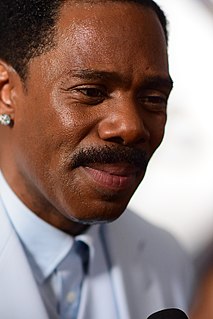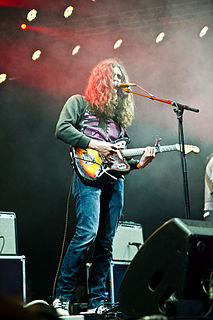A Quote by Colman Domingo
It's an experience I'd like to add to the chorus, that these blue-collar, macho men, like my older brother, had the capacity to say: 'I don't care, I love you anyway.' There are young kids thinking: 'I'll never come out because it's too hard in our communities.' But I'm saying maybe your story can be similar to mine.
Quote Topics
Add
Anyway
Because
Blue
Blue-Collar
Brother
Capacity
Care
Chorus
Collar
Come
Communities
Don't Care
Experience
Had
Hard
I Don't Care
I Love You
Kids
Like
Love
Love You
Macho
Maybe
Men
Mine
Never
Older
Older Brother
Our
Out
Say
Saying
Saying Maybe
Similar
Story
Thinking
Too
Young
Young Kid
Young Kids
Your
Related Quotes
My friends, when I was young, were always older than I was, and I've always liked them. And I love old men and old ladies, really. But I've known more elderly men, like Max Beerbohm, like Beranard Berenson, like Somerset Maugham, Winston Churchill-I'd put him first, anyway-what they say is so wise and so good. They know what they're talking about.
As you get older - for example, in our band we have members of our orchestra, like Carlos Enriquez and Ali Jackson and Walter Blanning. I taught them when they were in high school, and now they teach me.I'll regularly call Ali and say, "Man, can you break this rhythm down for me?" Or Carlos was actually our music director in Cuba, and he's been instrumental in a lot of my education, and I started to develop a saying with them, because they tease me all the time - you get older, you have that familiar relationship - I say, "You have to follow your young leadership, too."
So you scream from behind your door, say what's mine is mine, and not yours
I may have too much, but I'll take my chances
Cause God's stopped keeping score
And you cling to the things they sold you
Didn't you cover your eyes when they told you that he can't come back
Cause he has no children to come back for
It so hard to learn, there's so much to hate
Hanging on to hope when there is no hope to speak of
And the wounded skies above say it's much too late
So maybe we should all be praying for time
I didn't have a fraternity-like experience. I mean, I grew up with an older brother and a lot of male cousins and we were very physical with each other. We were very rambunctious when we were kids. But I never thought much - nor did I have reason to think much - about institutionalized hazing. But I think there's a reason young men are drawn to it.
The one thing about kids is that you never really know exactly what they're thinking or how they're seeing. After writing about kids, which is a little bit like putting the experience under a magnifying glass, you realize you have no idea how you thought as a kid. I've come to the conclusion that most of the things that we remember about our childhood are lies. We all have memories that stand out from when we were kids, but they're really just snapshots. You can't remember how you reacted because your whole head is different when you stand aside.
I’m not saying this is an absolute but in a way, if you’re not having kids – who gives a damn? Love who you want. Isn’t that what we say? Gay marriage – love who you want? If it’s your brother or sister it’s super-weird, but if you look at it, you’re not hurting anybody except every single person who freaks out because you’re in love with one another.
Normally you'll have a structure to a song. You'll have an intro to a verse to a pre-chorus to a chorus, kinda repeat that, maybe there's a bridge, then you'll go out on a chorus - that's the quintessential song structure - sometimes you might do a fake-out, re-do a pre-chorus but the chorus doesn't come until later, but for the most part you follow these tried and true structures.
It's just like an idea, like a chorus, and then we just jam on it - it happens in loads of different ways. The best songs I find always come from the subconscious, like when you don't think. Not to be pretentious about it, but usually songs just blurt out rather than thinking about it. I never write lyrics and then do a song, I find that really hard - that's like a real skill.
You have to sit with the songs until they start to live. Or do things straight-up spontaneously. I set up a beat just like I do in the live show, add the lyrics that I wrote in thirty minutes - I already had a topic in mind because I had this crazy experience with this girl who was trying to get close to me and it freaked me out because she was really close to another friend of mine, and I thought, "This is a story, I'm gonna make this into a song."



































